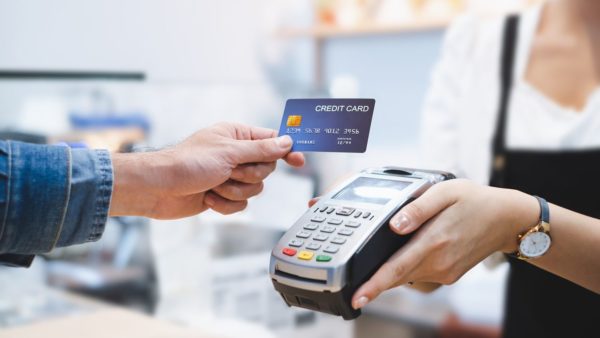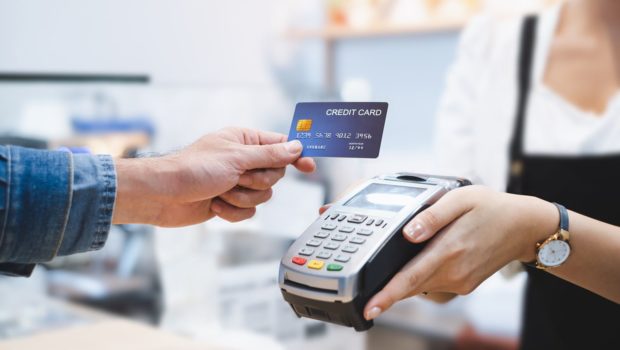How to Dispute Payment Card Fees
Did you encounter an issue with a recent transaction wherein you used your payment card? Or did your customer file for a chargeback on a legitimate transaction?
The Fair Credit Billing Act states that consumers have the right to dispute card charges if they are dissatisfied with a service or product they paid for—this extends to debit card charges as well.
Of course, the complainant will have to adhere to certain guidelines and meet specific conditions before the chargeback is approved. Primarily, however, a chargeback is processed if neither the merchant nor their acquiring bank can contest the complaint.
Whatever the case, chargebacks are very serious matters. You have to be familiar with the laws and regulations regarding these issues to make any progress, whether you’re filing or challenging the dispute.
Keep reading for a more in-depth explanation on disputing payment card fees and chargebacks!

General Step-by-Step Guide to Requesting Any Type of Chargeback
Step 1: Review the Transaction
The first thing you need to do is review the transaction. Go over the transaction details and gather all paperwork pertaining to your purchase. Make sure you have all the receipts ready. A receipt can be printed from the respective Card Machines that you used for the transaction.
Step 2: Contact the Merchant
Before proceeding, try contacting the seller first. Inform them about your dissatisfaction and properly enumerate whatever issues you’re having. The best case here is to resolve the issue internally.
Step 3: Submit the Chargeback Request
If the merchant refuses to cooperate—or if there’s no legitimate merchant involved in the transaction—it’s time to formally submit a chargeback request. In most cases, you’ll have to submit a formal email. Your letter should include the:
- Cardholder’s full address
- Amount in dispute
- Nature of the transaction
- Issue/problem with the transaction
- Date of the transaction
- Supporting paperwork (receipts, sales slips, invoice, payment records, etc.)
Note that the transaction amount in dispute will still be credited/charged to your account even after submitting a chargeback request. Your credit limit or debit account balance will only be restored after the investigation.
Contact your card-issuing bank for more details on this part of the process.
Step 3: Initial Review
After submitting a chargeback request, the card-issuing bank conducts an initial investigation to assess whether the transaction is valid or not. If they decide it’s valid, the request is denied.
On the other hand, if they decide that the transaction may not be valid, the request will be sent to the card network involved (Discover, American Express, Visa, or Mastercard).
At this point, the card-issuing bank may temporarily restore the cardholder’s credit limit.
Step 4: Card Network Decision
Now it’s time for the card network to investigate the request. If the chargeback is approved, the network will request either the cardholder’s issuing bank or merchant acquiring bank to shoulder the refund.
Step 5: Acquiring Bank Investigation
The acquiring bank then reviews the report and decides whether to send the dispute to the merchant, or send the report back to the network and claim that the issuing bank should shoulder the fees.
Step 6: Merchant Review
Now, it’s time for the merchant to review the report. If the request for a chargeback reaches the merchant involved, that means the card issuing bank, card network, and acquiring bank have all initially decided that the refund should be settled by the merchant.
At this point, the merchant only has two options: settle the refund, or dispute the chargeback request as well.
If the merchant agrees to the refund, the card network will close the case. However, if the merchant counters with a dispute, the report will be sent back to the card network for a second review.
Countering Fraudulent Chargebacks
Not all chargebacks are legitimate. Friendly fraud is when a consumer requests their issuing back for a chargeback even though the merchant delivered the product ordered safely and in good condition.
Given that presiding card network—along with the issuing and acquiring bank—conducts thorough investigations, there’s a good chance that the chargeback won’t actually be approved.
While the merchant does not suffer financial loss, per se, the chargeback will hurt their standing. Businesses that receive too many chargebacks are often classified as high-risk and will have a harder time applying for a loan, payment processor, or even merchant account.
And to make matters worse, statistics show that the number of friendly fraud cases in the country spikes by more than 40% annually. That’s why merchants need to know how to dispute chargebacks if they are confident they’re in the right.
Now, as we mentioned, the chargeback process involves multiple investigations if the merchant decides to contest the report. To prevent a lengthy, pointless exchange of responses, the card network primarily limits chargeback investigations to three cycles. Here’s how the merchant should respond respectively:
First Cycle: Initial Chargeback Dispute
The chargeback process is very lengthy. Even the initial investigation already involves multiple inspections from the issuing bank, acquiring bank, and card network. For the report to reach the merchant, these institutions would have to unanimously approve the request.
Fortunately, this is only the first cycle. As long as you adhere to guidelines and provide all the necessary documents, you should be able to contest the chargeback and push through with a pre-arbitration.
The card network will likely ask you to provide the following:
- Recorded/documented conversations with cardholder or customer
- Sales receipt
- Shipping receipt or tracking number (crucial for payments processed online)
- Respective bill-to and ship-to details
- Address Verification Service (AVS) results
- Courier delivery receipt
Second Cycle: Pre-Arbitration
Apart from Visa, card networks such as American Express, Discover, and Mastercard may elect to proceed with a per-arbitration if there isn’t sufficient evidence to make a grounded decision, the cardholder provides new evidence, or the complainant changes the reason for their chargeback.
The presiding card network will likely ask for more documents and evidence from both parties. If there is new information on the part of the cardholder, then the merchant will have to provide new, sufficient evidence to contest the dispute. The merchant will also have to submit any paperwork they missed during the initial dispute.
Failure to provide the necessary papers will lead the card network to rule in favor of the cardholder. In this case, the merchant forfeits the chargeback amount and any temporary credits provided to the cardholder will become permanent.
On the other hand, if the merchant convinces the card network that the chargeback request is fraudulent, the merchant gets to keep the chargeback amount permanently, the purchase will be reposted to the cardholder’s account, and the cardholder will lose any temporary credit as well.
Third Cycle: Arbitration
The final possible cycle in the chargeback process is the arbitration. It is an optional investigation that has to be requested by either the acquiring or issuing bank.
If the request is approved, the card network will likely provide a specific set of guidelines and requirements. Note that regulations vary on a case-by-case basis.
Before proceeding, it’s important for merchants to know that arbitration is costly. You’ll have to shell out around $500 to $1,000 and the cycle may span anywhere from two to six weeks.
And frankly, at this point things may have dragged on long enough. If you’re only disputing a low-ticket item worth a few hundred bucks—which you can easily earn back in profit— you might want to consider forfeiting.
However, if the amount in dispute exceeds these fees and is worth your resources, then by all means proceed with the arbitration.
Credit V.S. Debit Card Chargebacks
Debit card chargebacks are often more troublesome for cardholders. Meanwhile, credit card chargebacks may require a bit more cooperation and convincing on the part of the merchant.
The reason for this is that banks have more reason to investigate fraudulent credit card transactions than those paid with debit cards. With credit cards, the cardholder may refuse to pay the dues until the issue is resolved. This equates to profit loss on the part of the bank.
On the other hand, debit card payments are automatically deducted from the cardholder’s account in real-time. Whether the transaction is legit or not, the cardholder has already paid for the purchase.
Additional Resources
Friendly fraud statistics in the country
Cases of friendly fraud occur more often than most people think they do. In fact, statistics show that the rate of friendly fraud cases in the country increases by 41% annually. On top of that, 5% of all chargeback frauds are said to be cases of friendly fraud.
Goods and services at most risk of chargebacks
Before applying for a merchant account and payment processor, it’s important to assess your risk of getting a chargeback first.
Final Thoughts
If you are filing for a dispute, or are being filed against, it’s crucial to familiarize yourself with the specific conditions required for chargebacks to be credited to cardholders’ accounts.
Remember, different payment cards have varying rules, laws, and regulations regarding chargebacks and refunds. Do not make the mistake of assuming debit card refunds follow the same guidelines credit card chargebacks do. Otherwise, you’ll end up compromising your party’s case.
Also, don’t be afraid to consult with an expert—especially if the refund in question is worth thousands. The higher the amount in question is, the stricter the inspection will be. These types of high-value cases have no rooms for mistakes, so those with no prior experience might find themselves in trouble.
Have you ever tried disputing payment card fees before? Or did you ever have to contest fraudulent chargebacks? Share your experience in the comments section below!










![Why E-Cigs are Less Harmful than Cigarettes [Infographic]](https://technofaq.org/wp-content/uploads/2016/08/Why-E-Cigs-are-Less-Harmful-Than-Cigrettes-150x150.jpg)





